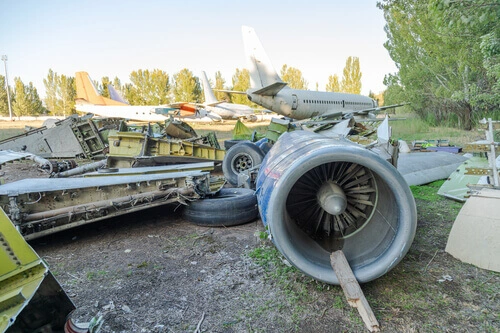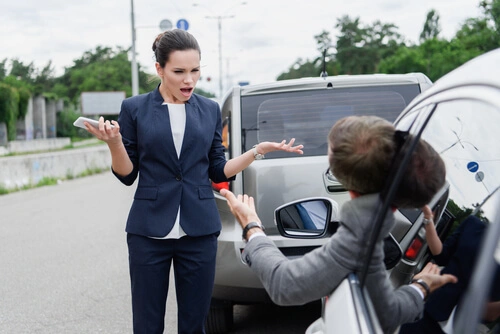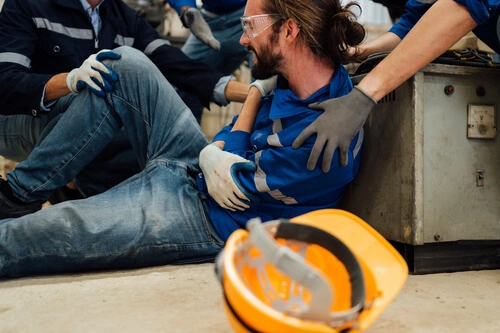Comprehensive Guide to Catastrophic Accident Attorneys in Ybor City
Introduction
Catastrophic accidents can drastically alter lives, leading to significant physical, emotional, and financial burdens. In Ybor City, Tampa, having a specialized catastrophic accident attorney is crucial for navigating the complexities of such cases and ensuring fair compensation. This guide provides a detailed look into the role of catastrophic accident attorneys, their importance, and how to choose the right one for your needs.
What is a Catastrophic Accident?
Definition and Characteristics
- Severe injuries impacting long-term health
- Examples: brain injuries, spinal cord injuries, severe burns
- Long-term or permanent disability
Importance of Hiring a Catastrophic Accident Attorney
Expertise in Handling Complex Cases
- Specialized knowledge of catastrophic injuries
- Experience with long-term prognosis and medical needs
Navigating Legal and Insurance Complexities
- Understanding of insurance policies and claims processes
- Ability to negotiate with insurance companies
Maximizing Compensation
- Calculating fair compensation for medical expenses, lost wages, and pain and suffering
- Ensuring future needs are met
Types of Catastrophic Accidents
Motor Vehicle Accidents
Car Accidents:
- High-Speed Collisions: When vehicles collide at high speeds, the force of impact can lead to severe injuries such as traumatic brain injuries, spinal cord injuries, and multiple fractures.
- Head-On Crashes: These accidents often result in serious injuries due to the combined speed of both vehicles. Common injuries include severe head trauma, internal injuries, and extensive damage to the extremities.
- T-Bone Accidents: These side-impact collisions can cause significant injuries, especially to the passengers on the side of the impact. Common injuries include pelvic fractures, chest injuries, and abdominal trauma.
Truck Accidents:
- Size and Weight: The massive size and weight of trucks mean that collisions often result in severe injuries or fatalities. Victims may suffer from crush injuries, spinal cord injuries, or traumatic brain injuries.
- Commercial Vehicle Regulations: Accidents involving commercial trucks may also involve issues like driver fatigue, improper loading, and maintenance failures.
Motorcycle Accidents:
- Lack of Protection: Motorcyclists are highly vulnerable in accidents due to the lack of protective barriers. Even low-speed collisions can lead to catastrophic injuries like road rash, fractures, and traumatic brain injuries.
- Visibility Issues: Motorcycles are less visible to other drivers, increasing the risk of accidents. Injuries often include severe limb injuries and spinal cord damage.
High-Impact Collisions and Rollover Accidents:
- Severe Trauma: These accidents often result in severe trauma, including spinal cord injuries, head injuries, and internal bleeding. The force of the impact can cause long-term health issues and disabilities.
- Rollover Risks: Vehicles with a high center of gravity, such as SUVs, are more prone to rollovers. Injuries can be extensive due to the violent nature of these accidents.
Workplace Accidents
Construction Site Injuries:
- Falls: Falling from heights, such as scaffolding or ladders, can cause catastrophic injuries like spinal cord injuries, traumatic brain injuries, and fractures.
- Equipment Malfunctions: Malfunctioning heavy machinery can lead to severe injuries, including amputations, crush injuries, and severe lacerations.
- Exposure to Hazardous Materials: Construction workers may be exposed to toxic chemicals, leading to respiratory issues, burns, and long-term health problems.
Industrial Accidents:
- Heavy Machinery Incidents: Accidents involving heavy machinery can result in severe injuries such as amputations, crush injuries, and traumatic brain injuries.
- Toxic Substances: Exposure to toxic substances in industrial settings can cause respiratory issues, chemical burns, and long-term health complications.
- Fire Hazards: Industrial sites often have fire hazards that can lead to catastrophic injuries such as severe burns, smoke inhalation, and even fatalities.
Each type of catastrophic accident can have profound impacts on the victims’ lives, often requiring long-term medical care, rehabilitation, and significant lifestyle adjustments. Understanding the nature and causes of these accidents is crucial for prevention and for seeking appropriate legal and medical assistance in the aftermath.
Common Injuries in Catastrophic Accidents
Traumatic Brain Injuries (TBI)
Symptoms and Long-Term Effects:
- Symptoms: Symptoms can range from mild (headache, dizziness, and confusion) to severe (loss of consciousness, persistent headaches, seizures, and cognitive deficits).
- Long-Term Effects: Long-term effects may include cognitive impairment, memory loss, difficulty with concentration, changes in personality, and emotional instability. Severe TBIs can result in permanent disability, requiring lifelong care and support.
Rehabilitation and Therapy Needs:
- Physical Therapy: To regain motor function and improve physical coordination.
- Occupational Therapy: To relearn daily activities and adapt to any physical limitations.
- Speech Therapy: To address issues with communication, swallowing, and cognition.
- Psychological Counseling: To cope with emotional and psychological changes.
Spinal Cord Injuries
Degrees of Spinal Injury: Complete vs. Incomplete:
- Complete Injury: Total loss of sensation and motor function below the injury level. This often results in paraplegia or quadriplegia.
- Incomplete Injury: Partial loss of sensation and motor function. The extent of impairment can vary widely, with some function remaining below the injury level.
Mobility Aids and Home Modifications:
- Mobility Aids: Wheelchairs (manual or powered), walkers, and other assistive devices to aid in movement.
- Home Modifications: Installation of ramps, widening doorways, accessible bathrooms, and other modifications to accommodate mobility challenges.
- Adaptive Equipment: Specialized equipment for daily activities, such as adapted vehicles and home automation systems.
Severe Burns
Treatment Options and Skin Grafts:
- Immediate Treatment: Includes cleaning and dressing the wounds, pain management, and preventing infection.
- Skin Grafts: For extensive burns, skin grafts may be necessary to replace damaged skin. This involves taking healthy skin from another part of the body and transplanting it to the burn area.
- Reconstructive Surgery: May be required to improve function and appearance, often involving multiple surgeries over time.
Psychological Impact and Counseling:
- Psychological Trauma: Severe burns can lead to significant psychological trauma, including post-traumatic stress disorder (PTSD), anxiety, and depression.
- Counseling: Psychological counseling and support groups can help patients cope with the emotional aftermath and improve their mental health.
- Rehabilitation: Physical rehabilitation to restore function and occupational therapy to help with daily activities.
Additional Common Injuries
Fractures and Dislocations:
- Complex Fractures: May require surgical intervention, physical therapy, and long-term rehabilitation.
- Joint Dislocations: Often involve extensive physical therapy and sometimes surgery to regain full function.
Internal Injuries:
- Organ Damage: Injuries to organs such as the liver, spleen, or lungs can be life-threatening and require immediate medical attention.
- Internal Bleeding: Can lead to shock and require surgical intervention.
Amputations:
- Traumatic Amputations: Result from severe injuries that cannot be repaired. This often involves extensive rehabilitation and prosthetics.
- Prosthetics: Modern prosthetics can help regain some function, but the adjustment period can be challenging both physically and emotionally.
Emotional and Psychological Injuries:
- Mental Health Impact: Catastrophic accidents often lead to significant psychological distress, including PTSD, anxiety, and depression.
- Support Systems: Mental health support, counseling, and peer support groups are crucial for recovery.
- Car Accidents: Whether you’ve been rear-ended, T-boned, or involved in a multi-vehicle collision, we have the experience and resources to handle your case effectively.
- DUI Accidents: If you’ve been injured by a drunk or impaired driver, we will fight to hold them accountable for their actions and pursue maximum compensation on your behalf.
- Hit & Run Accidents: Dealing with a hit-and-run accident can be frustrating, but our team is here to help you identify the responsible party and seek the compensation you deserve.
- Motorcycle Accidents: Motorcyclists are particularly vulnerable on the road, and if you’ve been injured in a motorcycle accident, we will work tirelessly to protect your rights and interests.
- Truck Accidents: Collisions involving commercial trucks can result in devastating injuries. We have the knowledge and experience to handle complex truck accident cases and pursue justice for you.
- Uninsured Motorist Claims: If you’ve been injured by an uninsured or underinsured motorist, we can help you explore your options for compensation through your own insurance policy.
- Uber & Lyft Accidents: Rideshare accidents present unique legal challenges, but we have the experience and resources to navigate the complexities of these cases and pursue the compensation you deserve.
- Rideshare Accidents: Whether you’re a passenger, driver, or pedestrian involved in a rideshare accident, we will fight to protect your rights and pursue the compensation you need to recover.
- Car Rental Accidents: If you’ve been injured in an accident involving a rental car, we can help you understand your legal options and pursue compensation from the responsible parties.
These injuries often require multidisciplinary care involving medical professionals, therapists, counselors, and support groups to address the complex needs of the victims and improve their quality of life.
Causes and Risk Factors
Human Error
- Distracted driving
- Negligence in the workplace
Environmental Factors
- Poor road conditions
- Hazardous work environments
Diagnosis and Medical Assessments
Initial Emergency Care
- Importance of immediate medical attention
- Stabilizing injuries and preventing further damage
Comprehensive Medical Evaluation
- Diagnostic imaging and tests
- Long-term care plans and specialist referrals
Legal Framework and Statutes in Florida
Statute of Limitations
- Timeframe for filing a claim
- Exceptions and extensions
Comparative Negligence
- How fault is determined and affects compensation
- Shared responsibility in accidents
Treatment and Rehabilitation Options
Medical Treatments
- Surgeries and medical procedures
- Ongoing medical care and specialist consultations
Physical Therapy
- Importance of rehabilitation
- Long-term physical therapy and recovery
Psychological Support
- Counseling for trauma and mental health
- Support groups and community resources
Preventive Measures
Road Safety Tips
- Defensive driving techniques
- Importance of seat belts and airbags
Workplace Safety Protocols
- Proper training and safety equipment
- Regular safety audits and inspections
Personal Stories and Case Studies
Real-Life Experiences
- Stories from survivors of catastrophic accidents
- Impact on their lives and recovery journey
Successful Legal Outcomes
- Case studies of successful claims
- Lessons learned from previous cases
Expert Insights
Quotes from Legal Experts
- Advice from experienced catastrophic accident attorneys
- Tips for navigating legal challenges
Medical Professionals’ Perspectives
- Insights from doctors and therapists
- Importance of multidisciplinary care
How to Choose the Right Catastrophic Accident Attorney
Qualifications to Look For
- Experience with catastrophic injury cases
- Track record of successful settlements and verdicts
Questions to Ask During Consultation
- Approach to handling your case
- Fees and payment structure
Conclusion
Catastrophic accidents require specialized legal representation to ensure victims receive the compensation and care they deserve. In Ybor City, Tampa, choosing the right attorney can make a significant difference in the outcome of your case. By understanding the complexities of catastrophic accidents and the legal processes involved, you can make informed decisions to protect your future.
FAQs
Q1: What qualifies as a catastrophic accident?
A1: Catastrophic accidents result in severe injuries with long-term or permanent effects, such as brain injuries, spinal cord injuries, and severe burns.
Q2: Why is it important to hire a specialized attorney for catastrophic accidents?
A2: Specialized attorneys have the expertise to navigate the complexities of such cases, negotiate with insurance companies, and maximize compensation for long-term needs.
Q3: What types of accidents can result in catastrophic injuries? A3: Common types include motor vehicle accidents, workplace accidents, medical malpractice, and product liability cases.
Q4: How is compensation calculated in catastrophic accident cases?
A4: Compensation is calculated based on medical expenses, lost wages, pain and suffering, and future care needs.
Q5: What are the first steps to take after a catastrophic accident?
A5: Seek immediate medical attention, document the accident, and consult a catastrophic accident attorney as soon as possible.










